#pantheist poetry
Text
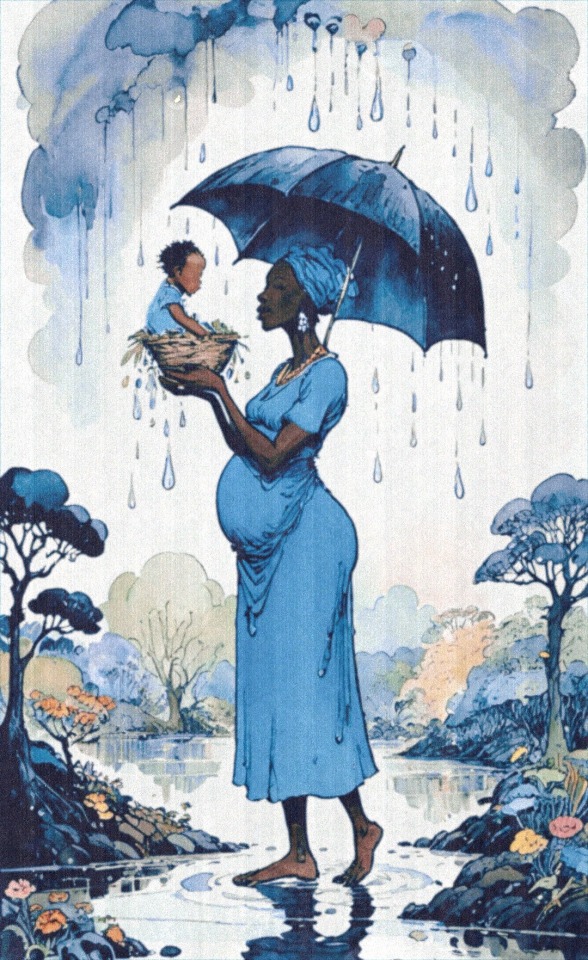
“Mother Earth, endlessly creating.
Birthing us here, a world so captivating.
Her children of earth, cradled in her embrace.
She nurtures and provides with boundless grace.
Rivers flowing, mountains tall.
Her gifts, abundant for one and all.
In her whispers, warnings grow.
Her plea for peace, endlessly show.”
#pagan#spiritual healing#healing#spirituality#nature#paganism#earth#worship#self care#mother nature#mother earth#poems and poetry#poetry#pantheist#lumi pantheist#pantheism#nature devotee#nature lover#pagans of color#paganlife#black witches#witches of color#black witch#sustainability#world peace#nature worship#formless divine#divinity#worshipping#poem
73 notes
·
View notes
Text
❦ welcome to my blog!! ❦

My name is Eve!! You may learn about me below—
IDENTITIES: Lesbian; genderfae; ace-spec; soft butch; xenogender
PRONOUNS: she/her; he/him; they/them; fey/fem/feyr/feyrs/femself; ve/vim/vis/vis/vimself
PERSONALITY TYPOLOGY: INFP; 4w5; sp/sx; 459; IEI-Ni; ELFV; Phlegmatic-Melancholic
MENTAL STATE: Synaesthesia; questioning/in diagnosis ADHD
INTERESTS: Art history; art practice; literature; reading poetry; writing poetry; MoistCr1TiKaL / penguinz0; philosophy; spirituality; music; film; aesthetics; perfumes; languages; personality typology; clouds; tattoos; Wikipedia; making plushies
FAVOURITE THINGS:
☙ BOOK: Orlando by Virginia Woolf
☙ WRITER: Michele Leggott
☙ FILM: The World To Come (2020) dir. Mona Fastvold
☙ SHOW: She-Ra and the Princesses of Power
☙ SONG: Oceanic Feeling by Lorde
☙ MUSICIAN: Lorde
☙ BAND: The Beatles
☙ ARTIST: Nicolas Poussin
☙ ART MOVEMENT: Renaissance / Pre-Raphaelite (i can't choose)
MISCELLANEOUS: Forever optimist; free Palestine; pantheist, atheist, non-theistic Satanist, secular humanist; taken; Aotearoa; my favourite colour is brown; I love double exclamation marks, em dashes, and oxford commas; my heart's home is in the clouds; art is my favourite thing in the world (other than my s/o); I spent eighty dollars on a bust of Tchaikovsky for my room <3
DNI: Mspec lesbian haters; proship; NSFW-focused blogs; radfems & terfs; current fans of DSMP or Harry Potter; Taylor Swift stans/defenders (casual fans are okay); pro-Israel
LINKS: Spotify for my full music taste, Letterboxd for my full film taste


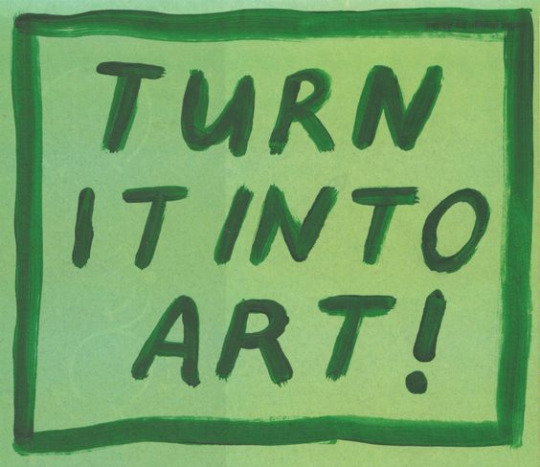
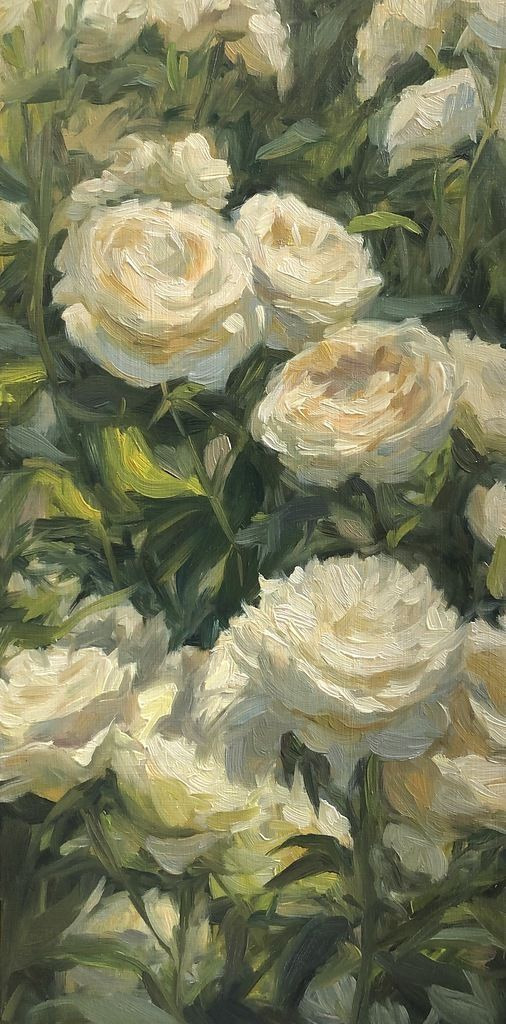

credits— icon by @calamityedits ; dividers by @cafekitsune ; turn it into art by @demiiwhiffin ; dni banner by @longe-boy (deactivated)
59 notes
·
View notes
Text
About Me💤

💤Names you can call me💤
Morpheus, Moop, Dream(Preferred), Mystic(Preferred), Birbo, Nightmare
💤Gender💤
Nonbinary/Gendervoid/Novarian
I seem to be one of Liminality and of the unknown void .The gender is there, but sometimes it is not... It stretches into the formless abyss. For the sake of my sanity, I just but if I had to put a term to it it would be gendervoid or Novarian(Masc Nonbinary)(Preferred Pronouns are He/Him They/Them, Void/Voids but you can use any)
💤Orientation💤
Asexual Panromantic
💤Myers Briggs💤
INTJ-A
💤Enneagram💤
5w4
💤Alignment💤
Chaotic Neutral
💤💤💤💤💤💤💤💤💤💤
I am a Hellenistic pagan and a Demonolator who specializes in Astral work, Energy work, oneriomancy, Divination, baneful magick, Chaos Magick and Celestial/Cosmic magick and Chthonic Deities and Demons
My patron deity is Morpheus
Patron Demon is Prince Stolas
💤Beliefs and Philosophy💤
Pantheist and Neo-platonist with a bit of animism(spirituality)
Luciferian ( morality)
Ethical and Existential Nihilism
Pessimist(Outlook on Life)
Relativism
Agnostic on some things tho
☆Zodiac: Pisces Sun(♓) Capricorn Moon(♑) Scorpio Rising(♏)
💤INTERESTS💤
Astronomy and Cosmology
Philosophy
Botany
Demonology and Angelology
Occultism and witchcraft
Mythology
Dreams and sleep science
Quantum physics
Ornithology
Psychiatry and Jungian Psychology
Geometry
Weird, dark, obscure, disturbing things in general
💤Other things I like💤
☆Writing(I write poetry)
☆Stargazing
☆Reading(Mostly Nonfiction, Classical Lit and Horror)
☆Heavy metal(Doom metal mostly)
☆Classic vinyl(60s and 70s with some 80s)
☆Gothic/Etherealwave/anything of that genre(newer to it and always looking for more bands of that nature)
☆Dark Blue, Dark purple, and black are my favorite colors
☆Neil Gaiman's The Sandman and Doctor Strange
☆Pokemon
☆I love Hazbin Hotel and Helluva Boss(I don't like Vivian as a person, though)
☆Anime
☆I love birds, especially corvids and owls
☆I own a black void kitty named Alice Cooper
☆parent of many photosynthetic children
☆I love collecting Oddities, Curiosities and Antiques
☆Misc☆
☆Neurodivergent up the ass(on spectrum)
☆Ravenclaw/Slytherin hybrid
☆expect some dark sarcastic humor from me
☆I am Gothic and voidpunk with some dark whimsigoth/Occult and Dark/Natural/Space Academia in fashion and aesthetic(Also WeirdCore , Psychedelic/Surreal, Dreamcore aesthetics are appealing as well). Liminal spaces are my j a m
☆I am an Otherkin/Therian/Fictionkin. My main Fictotypes are Dream of The Endless( The Sandman), Stolas(Helluva Boss), Giratina (Pokemon),Stephen Strange(Marvel), Aaravos(The Dragon Prince), Alastor(Hazbin Hotel), Princess Luna (My Little Pony) and Lord Sesshomaru (Inuyasha) My top otherkintypes are Fallen Angel /Demon, Angel/Seraphim, Eldritch/Void/Cosmic being, Corvidae (Cladiotherian), Jersey Devil. In general I am just here as a being of stars and thought up dreamscapes a borderline liminal conglomerate of holy and unholy abstractions

16 notes
·
View notes
Text


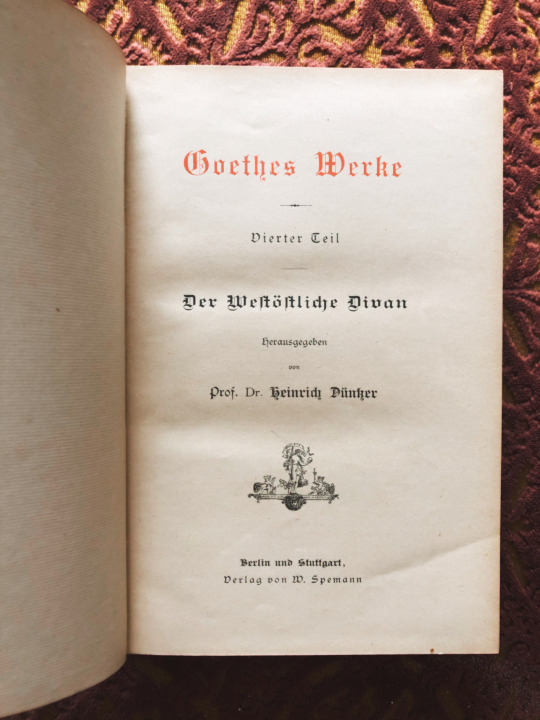
The "West-Eastern Diwan" by Goethe - A bridged beauty between Occident and Orient.
Published by Prof. Dr. Heinrich Düntzer, Berlin and Stuttgart, 1878.
It is said, that Goethe used the "oriental mask" to cover his pantheistic ideas, speaking trough the lips of the newly translated poets.
Next to the Hafez' poems, which where published and translated by the orientalist Joseph von Hammer, other literal and scientific sources were used as inspirational impact and to refine the tone of the great masters of Oriental poetry, like the academic achievements of Prof. Wurm, Prof. Paulus (Orientalist in Heidelberg), other translations of cultural impact like Rückert's "Östliche Rosen" (~ Eeastern Roses) the Mewlana-Transaltions of 1819 and the collection of August von Platen called "Ghaselen", Goethe corresponded with Boisserés and with one of the Grimm brothers.
Wilhelm von Humboldt praised the authencitiy of Goethe's work.
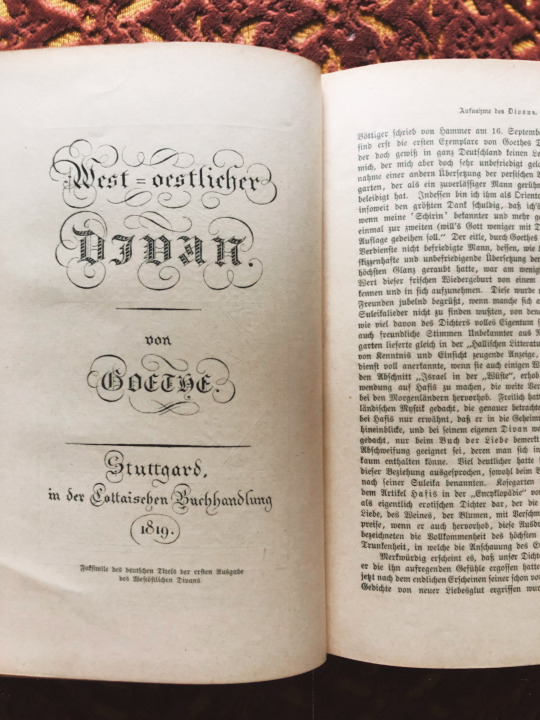

The "East-Western Diwan" is the last great cycle of poetry Goethe has wrote, his interest for Persian poetry arised in the time of the Rheinbund.
It can be traced, that this period of time disillusioned him, the diving into another time and continent is essential for escapism,
but as Goethe and his field of interest and curiosity is as deep as wide, he must felt like thrown like a freed bird into new heavenly realms.
The "Diwan Atmosphere" was created by reading several works and taking in Oriental elements.
So we can find "Madschnun and Leila" interwoven in the heart-shaking correspondence between Suleika and Hatem in the "Book Suleika". Expressions of the Dervish Hafis of Shiraz can be found, Tarafas, Labid (Prophet Mohammad called him the poet, who said the most true words; Labid converted to Islam and wrote eologies, but it is said, that he stopped practicing ?), Zoheir, Saadi and Hafez.
Saadi was also known as a sheik and was called "Poet-King" (or King-Poet, if you like :P) and if we would compare the structure of the poems, it is more likely, that Goethe imitated Saadi, rather than Hafez.

Goethe is playing wonderfully with expressions, merging wine and tears, praising the dust of the lover as better than safran and comparing the loved one to a drop of water and the lyrical-I as desert sand.
Numerology is emphasising the cultural background, drawing a link between the poet and the priest, pairing mystics and religion into ecstatic relief.
This wonderful work is a gift, for everyone, who sometimes had the feeling of getting ripped apart by two forces. It feels like the made-up gap between Europa and Asia is nothing but a fiction,
like a forgotten song of our cultural cradle.
Let us share the pomegranates of our culture, let us nourish from unkown fruits to break our borders, to sharpen our discernment,
to truely lift our feet and recognize the extraordinary.

#antiquarian book#world literature#19th century literature#book#reading#Goethe#East-Western Diwan#Östwestlicher Divan#cultural bridge#Persian poetry#Arabian culture#Oriental#Orient#poetry#poets#German poet#Johann Wolfgang von Goethe#1878#old book#antiquarian
10 notes
·
View notes
Text
ok so you know I love Ajak and Sersi and so on but some other Eternals I think are Neat are Rheaka Centaurus and Syne the Minotaur. They are indeed Eternals, but they’re not human-shaped or even humanoid like most. They’re skyscraper-sized kaiji vaguely in the shape of the Greco-Roman mythological creatures they’re named for. They look like machines but they’re not. Also they’re female. They’re sisters, part of six sisters named The Hex.
Rheaka is described as a "Druidic-War pantheist" (we are not told what that means afaik) and she generates “attack fauna” from herself and is skilled at plant manipulation. Honestly love the “vast inhuman personificaton of the destructive aspects of nature” vibes”
Rheaka calls her sister Syne “a million year old teenager” and it’s understandable why. Syne connects mentally to the Internet and reads LOTS of poetry. She in fact writes her own, and says she’s always wanted to be published, and strikes up an online chat with a human girl named Sally whom she encourages to start her own zine.
I love them, your honor.
#I am here for the giant elemental kaiju ladies who make attack fauna and want to publsh their poetry#love that for them#out of shirt
2 notes
·
View notes
Text










Pics:
1. One of the 1st books to give readers a behind the scenes look at Lovecraft & his works.
2 thru 4. Collections of Howard's tales - most of which were actually short stories.
5. HPL's picks of other authors' works, most of which inspired his own stuff.
6. Untold Lovecraftian tales (part 2!!), what else need be told?!
7 & 8. Cthulhu centric collections. I just love #7's motto...
9 to 10. How we convert the new generation's youths.
Ooo...
1915: HPL Output.
(From The United Amateur, Volume 15 & Issue #2, September.)
The Alabamian for spring is... unique (in that it's) devoted wholly to poetry.
(Its) opening poem, a delightful & ornate nature sonnet titled "The Brook," (is) a translation from the Spanish...
The sentiment of the whole is exquisite & every image exhibits striking beauty.
It is... regretted that both author & translator are... unrevealed.
(Howard then mentions 1 of his own poems...)
...We were ourselves guilty of... greater liberalism when we wrote that line in "Quinsnicket Park" which reads: "The bending boughs a 'diamond' wealth amass."
The Badger for June... discusses the latest topics of the day (in 1915)...
"Ready Made"... portrays (an) evil... that has rendered... America almost... subservient to the vulgar press.
To be led astray into... radicalism thru tricks of sensationalism.
(Then, Lovecraft mentions his poem "Quinsnicket Park" again, as "spoiling 3 & ½ otherwise excellent pages.")
"What May I Own?"... condemns... the coal & iron industries, declaring that... (the author would) rather be a brewer than a coal magnate or an ironmaster.
...This statement... forgets the basic character of the... industries which he contrasts.
(Now Howard lets loose his teetotaler persona.)
Beneath the liquor traffic lies a foundation accursed by decency & reason.
(This) industry... pander(s) to a false craving whose gratification lowers man in... mental & physical evolution.
The... vendor of rum is... the supreme foe of the human race & the most... dangerous... factor in the defiance of progress & the betrayal of mankind.
His trade can never be... purified,... being a crime against Nature.
(And now, we return to the original topic of this review.)
(But,) coal & iron are... desirable & necessary... to a (growing) civilization.
Their present evils are... 'alien' to their essential principles, being connected (to) the uneasy industrialism of this age.
These faults are... possessed in common with all great industries.
An article on the European War is an amazing outburst of socialism (at) its worst.
The idea that this shocking carnage is the result of a... plot of the ruling classes... to destroy their labor (force) is ludicrous...
We are led to (think that) those best friends, (the) Kaiser & his cousins George & Nicholas, are... pretending hostility... to rid themselves of (some) troublesome peasants!
We do not know what (this author) had been reading lately, but... hope time may modify his ideas (&) that he turn his dignified style... to some object worthy of (his skill).
(Ouch. Guess "fake news" is nothing new...)
Dowdell's Bearcat for July marks... an era of improvement in... quality..., having... now acquired a cover & (extra) pages which... will never be lessened.
The influence of the Olympian is perceptible... & for his... selection of so worthy a model (the editor) is to be commended.
(Now, HPL mentions the inclusion of his article "Dignity of Journalism" in this paper.)
Brooklynite for July is... the 1st paper to print an account of the Rocky Mount convention.
The description... is of (an) informal character, yet is (also) an animated chronicle of an enjoyable event.
(An) account of the National convent- ion is more dignified & (should) be... a model for this sort of composition.
(Suddenly, Lovecraft's own journal is reviewed - shouldn't Howard recluse himself?)
The Conservative for July is notable for... the poem "A Dream of the Golden Ages."
(This) pantheistic, Nature worshipping mind (gives his work)... a unique & illusive atmosphere which contrasts favourably with the earthy tone of... less fanciful (poets).
(The author) adopts... the regular, conservative forms of a 'saner' generation.
He inclines toward... Keats & does not confine single thoughts to single couplets (as) in the... 18th century.
We believe (the author) is (starting) a successful career as a... poet & await (his) laureateship.
The Coyote for July (is) a wonderful improvement over the March (issue), both in... its contributions &... editorial excellence.
"Rebirth of the British Empire" is a... clear exposition of the virtues where- by Old England maintains her proud position as Mistress of the Seas & (as) chief colonial empire of the world.
Lake Breeze for June (is) distinctly literary rather than political (in) nature.
(A) plea for a Dept. of Instruction is a just one & ought to meet with (an enthusiastic) response from... our (more learned) members.
(The) concluding editorial "Literature & Politics" is (a) concise exposition of the United's new ideals &... master- fully refutes... the fallacy that political quarrels 'stimulate' press associations.
Next: Part 2.
0 notes
Text
During the 1380s, mustaches were embraced as a sign of pantheism, a philosophical and religious belief that was popular among some intellectuals and thinkers of the time. This movement, which viewed all of reality as identical to divinity or a supreme entity, not only shaped the way people thought about spirituality and the universe, but also influenced their views on physical appearance and fashion.
One reason why mustaches were seen as a symbol of pantheism during this time was because they were believed to be a representation of the all-encompassing nature of God or the divine. Pantheists saw divinity in all things, including the physical world and the human body. Mustaches, with their natural and ubiquitous presence on the faces of men, were seen as a physical manifestation of this divine presence.
Moreover, the cultivation and maintenance of a mustache required a certain level of care and attention, which was thought to align with the pantheistic belief in the interconnectedness and interdependence of all things. Just as every aspect of nature was interconnected and dependent on each other, so too was the growth and maintenance of a mustache dependent on proper care and attention.
Additionally, the popularity of mustaches among pantheistic thinkers can also be attributed to the rejection of societal norms and conventions. Pantheism often challenged traditional religious beliefs and practices, advocating for a more personal and intimate connection with the divine. In a similar way, mustaches were seen as a rebellion against societal norms of the time, which dictated that facial hair should be shaved or kept to a minimum.
Mustaches also held a symbolic significance in the arts and literature of the 1380s, with many references to them in works of poetry and philosophy of the era. Famous pantheistic authors, such as Italian poet Dante Alighieri and English writer Geoffrey Chaucer, often used the image of a mustache to convey their beliefs in the all-encompassing nature of divinity.
In conclusion, during the 1380s, mustaches were seen as a symbol of pantheism due to their representation of divinity in the physical world, their connection to the interconnectedness of all things, and their rejection of societal norms and conventions. This cultural and philosophical movement greatly influenced the way people viewed mustaches and elevated them from a mere fashion statement to a symbol of a profound spiritual belief.
0 notes
Text
The project began with a poem by Tanikawa, which provided the inspiration for a very unusual spatial arrangement:
"Winter house or pioneer cabin (house)
Summer space or church for a pantheist (need not be a house)" 1
The "church for a pantheist" is a strange space - with no recognisable purpose and, above all, of little practical use in the conventional sense. Its floor is made of stamped earth and has a steep slope – not enough steep and too damp to serve as a place to sit for a poetry reading, for example. The earth floor seems to have been created solely to bring the sloping terrain into the house and, much like the surrounding forest, to be wandered through in an aimless manner. In addition to two slender, braced timber posts, the space is presided over by a bench, a sculpture of a cockerel, a basin for drawing water and the aforementioned, rather sculptural ladder.
The sacred summer space seems to have hardly ever been used, in part because the former owner made little use of the house; but for the architect it unleashed a chain of concepts and metaphors that he later condensed into an entire theory of space in an essay in The Japan Architect in 1975. Besides the fairly easy-to-understand concept of "transversality" in this essay Shinohara indisputably elaborated the concept of the "Third Person singular":
"The act of traversing expresses a basic function in relation to the combination of site-level differential and the geometric space of the main room. [...] as one traverses this space, one's vision alters from perspective to reverse perspective and back to perspective again. The alterations in the condition occur in the first person. But I am interested in what happens to change the condition of the space when someone traverses it. This takes place in the third person. Alteration in the first person can easily be included in a general background of phenomenalism; in other words, such alteration can be regarded as a special authority for the recognition of the first person. The changes that take place in the third person, however, are not ordinary. The survey of physical space is made by the third person." 2
0 notes
Text
Steven Knapp and Walter Benn Michaels. "Against Theory." Critical Inquiry 8 (1982): 727-9.
The claim that all meanings are intentional is not, of course, an unfamiliar one in contemporary philosophy of language. John Searle, for example, asserts that "there is no getting away from intentionality," and he and others have advanced arguments to support this claim.1 Our purpose here is not to add another such argument but to show how radically counterintuitive the alternative would be. We can begin to get a sense of this simply by noticing how difficult it is to imagine a case of intentionless meaning.
1: John R. Searle, "Reiterating the Differences: A Reply to Derrida," Glyph 1 (1977): 202.
Suppose that you're walking along a beach and you come upon a curious sequence of squiggles in the sand. You step back a few paces and notice that they spell out the following words:
A slumber did my spirit seal;
I had no human fears:
She seemed a thing that could not feel
The touch of earthly years.2
2: Wordsworth's lyric has been a standard example in theoretical arguments since its adoption by Hirsch; see Validity in Interpretation, pp. 227-30 and 238-30.
This would seem to be a good case of intentionless meaning: you recognize the writing as writing, you understand what the words mean, you may even identify them as constituting a rhymed poetic stanza-- and all this without knowing anything about the author and indeed without needing to connect the words to any notion of an author at all. You can do all these things without thinking of anyone's intention. But now suppose that, as you stand gazing at this pattern in the sand, a wave washes up and recedes, leaving in its wake (written below what you now realize was only the first stanza) the following words:
No motion has she now, no force;
She neither hears nor sees;
Rolled round in earth's diurnal course,
With rocks, and stones, and trees.
One might ask whether the question of intention still seems as irrelevant as it did seconds before. You will now, we suspect, feel compelled to explain what you have just seen. Are these marks mere accidents, produced by the mechanical operation of the waves on the sand (through some subtle and unprecedented process of erosion, percolation, etc.)? Or is the sea alive and striving to express its pantheistic faith? Or has Wordsworth, since his death, become a sort of genius of the shore who inhabits the waves and periodically inscribes on the sand his elegiac sentiments? You might go on extending the list of explanations indefinitely, but you would find, we think, that all the explanations fall into two categories. You will either be ascribing these marks to some agent capable of intentions (the living sea, the haunting Wordsworth, etc.), or you will count them as nonintentional effects of mechanical processes (erosion, percolation, etc.). But in the second case-- where the marks now seem to be accidents-- will they still seem to be words?
Clearly not. They will merely seem to resemble words. You will be amazed, perhaps, that such an astonishing coincidence could occur. Of course, you would have been no less amazed had you decided that the sea or the ghost of Wordsworth was responsible. But it's essential to recognize that in the two cases your amazement would have two entirely different sources. In one case, you would be amazed by the identity of the author-- who would have thought that the sea can write poetry? In the other case, however, in which you accept the hypothesis of natural accident, you're amazed to discover that what you thought was poetry turns out not to be poetry at all. It isn't poetry because it isn't language; that's what it means to call it an accident. As long as you thought the marks were poetry, you were assuming their intentional character. You had no idea who the author was, and this may have tricked you into thinking that positing an author was irrelevant to your ability to read the stanza. But in fact you had, without realizing it, already posited an author. It was only with the mysterious arrival of the second stanza that your tacit assumption (e.g., someone writing with a stick) was challenged and you realized that you had made one. Only now, when positing an author seems impossible, do you genuinely imagine the marks as authorless. But to deprive them of an author is to convert them into accidental likenesses of language. They are not, after all, an example of intentionless meaning; as soon as they become intentionless they become meaningless as well.
The arrival of the second stanza made clear that what had seemed to be an example of intentionless language was either not intentionless or not language. The question was whether the marks counted as language; what determined the answer was a decision as to whether or not they were the product of an intentional agent. If our example has seemed farfetched, it is only because there is seldom occasion in our culture to wonder whether the sea is an intentional agent. But there are cases where the question of intentional agency might be an important and difficult one. Can computers speak? Arguments over this question reproduce exactly the terms of our example. Since computers are machines, the issue of whether they can speak seems to hinge on the possibility of intentionless language. But our example shows that there is no such thing as intentionless language; the only real issue is whether computers are capable of intentions. However this issue may be decided-- and our example offers no help in deciding it-- the decision will not rest on a theory of meaning but on a judgment as to whether computers can be intentional agents. This is not to deny that a great deal-- morally, legally, and politically-- might depend on such judgments. But no degree of practical importance will give these judgments theoretical force.
The difference between theoretical principle and practical or empirical judgments can be clarified by one last glance at the case of the wave poem. Suppose, having seen the second stanza wash up on the beach, you have decided that the "poem" is really an accidental effect of erosion, percolation, and so on and therefore not language at all. What would it now take to change your mind? No theoretical argument will make a difference. But suppose you notice, rising out of the sea some distance from the shore, a small submarine, out of which clamber a half dozen figures in white lab coats. One of them trains his binoculars on the beach and shouts triumphantly, "It worked! It worked! Let's go down and try it again." Presumably, you will now once again change your mind, not because you have a new account of language, meaning, or intention but because you now have new evidence of an author. The question of authorship is and always was an empirical question; it has now received a new empirical answer. The theoretical temptation is to imagine that such empirical questions must, or should, have theoretical answers.
1 note
·
View note
Text
Sky's the Limit


The Ascendants held a planet, but the cosmos wasn’t worth taking. Outer space had all the same chaos as Yaldev in its untamed years, without the land for suppression towers. Meager startup funding was tossed at floating towers, and at vessels that could withstand the empty vacuum and spontaneous sorcery of the void, but what progress could they make? The study of the stars was a heresy, first condemned in the days when Parc Pelbee purged the lie of a pantheistic universe. Astronomy moved toward acceptance with the speed of aging stars, but for the foreseeable future the Empire was bound to the only home it ever had.
---
Yaldev is a sci-fantasy worldbuilding project by Ulysses Maurer, with art by Beeple. By looking at narratives, stylized loredumps, bad poetry and little details, we'll witness the story of a planet filled with magical power, the nation which tried to conquer it, this empire’s dramatic collapse and the new world which emerged in its wake. Along the way we'll meet the characters who live here, and we'll explore questions about nationalism, rationalism, the natural world and the quest to master it. For all stories in chronological order, check out the pinned posts at r/Yaldev!
#beeple#fantasy#scifi#worldbuilding#writing#everyday#short story#surreal#dystopia#dystopian#dystopian fiction#science fiction#science fantasy#sci fantasy#sci-fantasy#scifantasy#sf#sff#worldbuild#worldbuilder#worldbuilders#magic#d&d#dnd#canadian writers#escapism#lore#amwriting
0 notes
Text

livestock and poetry Veles is called upon as the god of literature and communication. [28] In Ukraine, there has been a debate as to whether the religion should be monotheistic or polytheistic. [38] In keeping with the pre-Christian belief systems of the region, the groups who inherit Volodymyr Shaian's tradition, among others, espouse polytheism. [38]
Conversely, Lev Sylenko's Native Ukrainian National Faith (RUNVira for short, also called
"Sylenkoism") regards itself as monotheistic and focuses its worship upon a single God whom they identify by the name Dazhbog, interpreted as the life-giving energy of the cosmos. [39]
Sylenko characterised Dazhbog as "light, endlessness, gravitation, eternity, movement, action, the energy of unconscious and conscious being". [40] Based on this description, Ivakhiv argued that Sylenkoite theology might better be regarded as pantheistic or panentheistic rather than monotheistic. (40]
Sylenko acknowledged that the ancient Slavs were polytheists but believed that a monotheistic view reflected an evolution in human spiritual development and thus should be adopted. 41] A similar view is espoused by Russian Ynglism, [28] while another distinctively monotheistic Rodnover movement that has been compared to Sylenkoism is Russian Kandybaism. [42] Lesiv reported about a Sylenkoite follower who said that "we cannots CLONES
1 note
·
View note
Text
🌱🍃Spring🌿
As the earth stirs from its wintry slumber, my soul awakens to the promise of your gentle touch. Oh, how I have longed for the moment when your warmth would grace our world once more.
With each passing day now, I feel your presence drawing nearer, like a beloved melody on the breeze. The air is infused with anticipation, as if every living thing eagerly awaits your embrace.
I find comfort and renewal. Your blossoms open like love letters from nature itself, each petal proof of the beauty of new beginnings.
How I adore you! Your arrival carries in not just the changing of seasons, but a celebration of life in all its vibrant glory. It is a time of growth, of rebirth, of endless possibility.
So here I stand, on the threshold of your arrival, with open arms and a heart overflowing with gratitude. For in you, dear Spring, I find inspiration, I find joy, I easily find the very essence of life itself.
I am grateful.
#pagan#spiritual healing#healing#spirituality#nature#paganism#earth#worship#self care#altars#spring equinox#ostara#poems and poetry#poems#poetry#nature devotee#mother nature#mother earth#earthporn#spring#text#writing#gratitude#BiPoc#black witches#black witch#witches of color#lumi pantheist#pantheist
18 notes
·
View notes
Text
Today for Women’s History Month we honor the Uruguayan poet Juana de Ibarbourou both March 8, 1892.
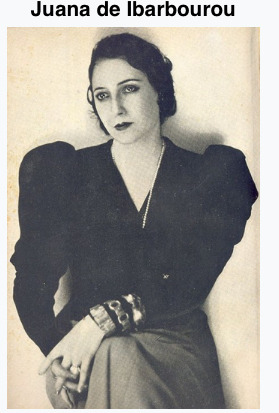
Juana Fernández Morales de Ibarbourou, also known as Juana de América, (March 8, 1892 – July 15, 1979) was a Uruguayan poet and one of the most popular poets of Spanish America. Her poetry, the earliest of which is often highly erotic, is notable for her identification of her feelings with nature around her. She was nominated for the Nobel Prize in Literature four times.
Juana de Ibarbourou was a feminist, naturalist, and pantheist.
Juana de Ibarbourou was an early Latin American feminist. Ibarbourou's feminism is evident in poems such as "La Higuera", in which she describes a fig tree as more beautiful than the straight and blooming trees around it, and "Como La Primavera", in which she asserts that authenticity is more attractive than any perfume. Also, in "La Cita", Ibarbourou extols her naked form devoid of traditional ornamentation, comparing her natural features to various material accessories and finding in favor of her unadorned body.
Nature imagery and eroticism define a great body of Ibarbourou's poetry.
Ibarbourou's depiction of death in her poetry was not consistent throughout her body of work. In "La Inquietud Fugaz", Ibarbourou portrayed a binary, final death consistent with Western tradition. In "Vida-Garfio" and "Carne Inmortal", however, Ibarbourou describes her dead body giving rise to plant life, allowing her to live on.
In "Rebelde", one of Ibarbourou's most richly constructed poems, Ibarbourou details a confrontation between herself and Charon, the ferryman of the River Styx. Surrounded by wailing souls on the boat passage to the underworld, Ibarbourou defiantly refuses to lament her fate, acting as cheerfully as a sparrow. Although Ibarbourou does not escape her fate, she wins a moral victory against the forces of death.
Like most poets, Ibarbourou nursed an intense fear of death. Though it is easy to surmise this from her poetry, she states so explicitly in the first line of "Carne Inmortal."
Example of her poetry
"RECONQUISTA"
No sé de donde regresó el anhelo
De volver a cantar como en el tiempo
en que tenía entre mi puño el cielo
Y con una perla azul el pensamiento.
De una enlutada nube, la centella,
Súbito pez, hendió la noche cálida
Y en mí se abrió de nuevo la crisálida
Del verso alado y su bruñida estrella.
Ahora ya es el hino centelleante
Que alza hasta Dios la ofrenda poderosa
De su bruñida lanza de diamante.
Unidad de la luz sobre la rosa.
Y otra vez la conquista alucinante
De la eterna poesía victoriosa.
-Montevideo, 1960
Mi pequeño regalo de Pascuas para Nimia Vicens Madrazo,
en su espléndido San Juan de Puerto Rico. Afectuosamente. -Juana de Ibarbourou[2]
Published works
Lenguas de diamante (1919)
Raiz salvaje (1920)
La rosa de los vientos (1930)
Oro y tormenta (1956), biblical themes reflect her preoccupation with suffering and death.
Chico Carlo (1944) contains her memoirs.
Obras Completas (3rd ed. 1968).
#Women’s History Month#Uruguay#women in poetry#March 8 1892#Books by women#La Higuera#Poetry by women#Como La Primavera#La Cita#La Inquietud Fugaz#Vida-Garfio#Carne Inmortal#Rebelde#Lenguas de diamante#Obras Completas#Raiz salvaje#La rosa de los vientos#Oro y tormenta#Chico Carlo
0 notes
Text
How is it possible someone who loves Rilke with all his heart, and plays Beethoven beautifully in the evening, the next day starts killing people as if stamping forms? He called the question frightening because, he said, I don't have any answer yet, I tried, I don't have any answer yet.
Well. This is one of the paradoxes of creativity and destructivity, destructiveness. In a very paradoxical way even a love of Rilke, with Rilke's insistence on the winnowed-down heart of the poetic essence—almost refined—what I call materializing, rendering concrete the ineffable heart of poetry—in a perverse way such claimants to the love of Rilke's poetry can actually persuade themselves that they are in fact straining towards the same kind of purity, only this time on a human level. That having identified, as far as they're concerned, what is the pure representation of the human form and human culture they are performing the same task as Rilke does, saying: just as Rilke tries to absolutely get down to the pure heart, the pure essence of poetry, that they are doing the same thing for humanity. It's sick, it's perverse,
It's understandable?
It's rationalizable. I can see such people actually talking to themselves, looking at themselves in the mirror and saying that, or even writing it down as a manifesto. And for them this logic, this warped logic, would be sustainable. And the same thing of course with the distortion of Beethoven's music—the kind of elation, the kind of vision, the visionary aspect, the visionary residuum of listening to a great work like a Beethoven symphony could say: we're building the symphony of humanity, glorious, shorn of all impurities, of all frailties, feebleness, and so on. I tried too, like Steiner—I suppose all of us, from time to time—to ask that question, how is it possible,
How easy is it?
It cannot be easy. It requires also a sense of privilege: those who feel privileged, and who believe that now the world is divided into the elite and the scum. There has to be a sense of privilege—rather than a sense of pantheistic communality, we have to separate those two different groups—that they derived from the aesthetic creations of their own kind.
How easy is it to make out of very gentle men or women, or men, let's say, torturers? You've met them.
Oh, yes.
All your life.
All my life. Very easy. I read an example of a colleague of mine, a doctor—a medical doctor—who was arrested simply for having victims of police brutality in his clinic, for taking them to his clinic for treatment. People were bleeding to death in his van, and then he was tortured. He was accused of being a doctor of rebels, and behold, one of his torturers was a former student at the university,
And he knew him well?
Yes. He said, Oh, you once taught me, and very calmly proceeded to tie his wrists to rings in the ceiling, and tortured him. The people who—again, we go back to this—who divided themselves into the chosen and the rest—and it's clear that that individual considered himself chosen—even his passage under the tutelage of this doctor was for him simply a service which that doctor had to perform towards his tribe of the privileged elite. That's the way they look at it, that's the way they think. I met them; I know them.
1 note
·
View note
Note
!!!!
OKAY FINALLY ANSWERING THIS lmao sorry it took me so long, I've been waiting until I had enough energy/wherewithal to do this justice
You gave me a grand tota of 4 !!!!s so I'm going to go ahead and introduce 2 OCs, both from Unquiet Bones
Quick summary for anyone else reading: Unquiet Bones is my original fiction project, a fantasy world roughly parallel to Renaissance Europe except that it is a) a pantheistic society, and b) magic exists, in the form of "academic" magic (i.e. mages) and "religious" magic (i.e. clerics).
There are a total of 14 official gods and goddesses, divided into 7 "Day Gods" (concerned with the material world; i.e. life, crops, harvest, crafts, family, mercantilism) and 7 "Night Gods" (concerned with the intangible world; art, love, poetry, mysticism, and death).
I'm going to be introducing Varnius (the closest thing the story currently has to an antagonist, albeit more in terms of "has goals opposing the protagonist" than "villain bad man"), and Antanasia (our protagonist, a priestess and necromancer who works in the equivalent of her society's forensic crime unit).
TW: UNQUIET BONES DEALS WITH SUICIDE AS A KEY THEME. IF THIS CONCEPT IS UPSETTING TO YOU, PLEASE DO NOT READ.
VARNIUS
Varnius is the less developed of the two -- his original role was as a Jim Jones archetyppe cult leader, but on further thought I've softened his character considerably as making him an out-and-out villain contradicted one of the key messages of UB as a whole. SO please bear with a degree of thinking-out-loud as I type.
Varnius was once a priest of Ysa-Munda, the goddess of death, although his current status is debatable. Officially, he's been stripped of his priesthood -- unofficially, he still considers himself an acolyte of Ysa-Munda and is addressed as Father Varnius by his adherents.
For the first thirty years or so of his life, Varnius was not a particularly exceptional person. He was raised by loving parents in a comfortable but not overly affluent home and was a quiet, thoughtful, bookish boy who was noted for having a great deal of empathy; he was teased as a child for his big heart, the sort of child to cry when his peers tormented the local wildlife and the first to stand up for the underdog.
It was no surprise to anyone when Varnius declared his intention to become a priest, although many expected him to dedicate himself to one of the Day Gods. Instead, his choice landed on Ysa-Munda. He completed his training and rose steadily through the ranks of the priesthood, specialising in the counselling service the priesthood offered.
See, Ysa-Munda is the goddess of death, but her priests and priestesses preach that this means only Ysa-Munda herself can choose when to call a soul back to herself. So murder and suicide are both seen as the most grievous sins one can commit against the goddess -- an attempt to usurp her domain. Therefore, a sect of Ysa-Munda priests created and maintains what is essentially a suicide watch service, to talk down people in despair.
Varnius, empathetic as he is, found his niche there and quickly grew adept at creating fast, strong bonds with the people he spoke to. He was good at his job... if you defined his job as "stop people taking their lives right in front of you".
Except Varnius noticed that while some of his patients did indeed recover after moments of crisis and go on to live happy, fulfilling lives, others were struggling with far more persistent issues and came back again... and again... and again... always only ever just keeping their heads above water. Chronic mental and physical illness, disability, poverty, abusive living situations... none of which Varnius had any real power to change, and which consoling words wore thin over extremely quickly.
At first, Varnius tried to channel his growing frustration into productive action. He lobbied the royal council for funds to create community support projects. When that failed, he tried to fundraise among the wealthier populace. When that failed, he tried to stretch the tithe funds to cover soup kitchens, safe houses, and doctors for the poorest citizens. But systemic problems in society were far bigger than one man and so Varnius began to grow bitter and disillusioned.
Eventually, he reached a breaking point and had a crisis of faith. If Ysa-Munda held power over death -- and if she was not an evil deity -- why would she withold that comfort from those who had no joy left in their lives? The contradiction drove him to despair and Varnius spent weeks, months, coming through every sacred book of Ysa-Munda to find an answer.
At length, the one he found -- whether in the writings or within his own mind is unclear -- was very simple: Ysa-Munda did not abhor a suicide at all. Suicide was merely the call of the void. Just because Ysa-Munda did not reach out and stop the heart in a person's chest herself, did not mean she was not bringing a life to an end. Therefore, since it was accepting that keeping a person alive only to suffer was a sin, it was morally correct to allow someone in true despair to end their life.
This view went completely against the accepted doctrine of Ysa-Munda and when Varnius preached a sermon on his new vision, he was quickly stopped, stripped of his priesthood, and dismissed from the temple.
Now aimless, ripped from the only structure he had known for the entirety of his adult life, Varnius had nothing left to cling to except his belief in his new doctine. Consequently, he pulled together what money he could and acquired a run-down manor house in the countryside surrounding the capital city. There he created a retreat for those who wished to end their lives, where they could escape judgement, meditate on their decision and ultimately pursue death if they believed it was the right thing to do.
Presently, Varnius is viewed with intense suspicion as a vicious cult leader at best, a serial killer at worst, but because he does not kill anyone personally he is not currently falling foul of any law... but that doesn't mean anyone likes what he is doing. Except for his patients/"family", that is.
But not everyone who visits Varnius's retreat chooses death. He does genuinely still want to help anyone he can and the manor estate is populated by a small but growing permanent community made up of individuals who for whatever reason feel they are incompatible with the wider world but still maintain a desire to live. Likewise, it is not unknown for certain residents to spend time at Varnius's retreat on numerous occasions as they try to adjust back to "normal" life.
The tragedy of Varnius's good intentions is that, slowly but surely, his personal barometer for "yeah, it makes sense you'd tap out here" gets progressively lower and lower as he himself falls deeper into despair that life (in general for everyone and personally for himself) will ever improve. So over times he goes from trying to save everyone who comes to him but ultimately allowing them the autonomy to make their own decision over whether they live or die, to eventually just agreeing that death is easier, better, preferable; even, in some cases, acting as a voice of pessimism to someone who is trying to find a reason to continue living.
ANTANASIA:
Twenty years ago, a rumour whipped around the kingdom that a necromancer was wreaking havoc in the isolated farming village of Spurrow, far to the north. The king duly despatched an accomplished magus and a high-ranking priestess of Ysa-Munda to investigate.
They found an eight-year-old girl whose mother had succumbed to the plague and, with her twin sister, had tried to right what they perceived as Ysa-Munda's wrong. The attempt cost the sister her life and brought back the mother only as a shambling shadow of a person, whom her husband promptly drowned in the duck pond to rid the world of such horror.
Annie Fownten was brought back to the capital for interrogation. Where and how has she learned to wield such magic? What had possessed her to pervert the laws of nature so egregiously? But what the king -- who had just one young, sickly heir to his name -- really wanted to know was... could she do it again? Could she do it more successfully?
As it turned out, she could, and Prince Damian grew up healthy if rather cold (physically, that is; the boy had hands like a corpse), proving an adept enough ruler when he unexpectedly inherited the throne at a very young age.
Antanasia, meanwhile, was adopted by the priestess and the magus (who, during this series of events, had fallen into a deep and sapphic love, as you do), and grew up with her future already written: a priestess of Ysa-Munda. How could she be anything else? Clearly she was especially favoured by the goddess. Otherwise she would be an abomination that should be killed before she brought divine wrath down upon the world.
As an adult, Antanasia's life is surprisingly dull. Her main occupation is witness interrogation, specialising in murder victims. Nothing like asking the victims themselves who brought about their grisly end. Sure, sometimes they lie, or are mistaken, or simply spout unintelligeble gibberish due to the trauma of being dragged back from whatever awaits souls after death... but hey, the unsolved crime rate in the capital has never been lower!
Antanasia, meanwhile, is afflicted with PTSD from the crime scenes she has witnessed and the accounts she has heard from the deceased. For some years now she has struggled with a deep and enduring depression; her only ray of sunlight is her best friend, the walking talking skeleton spectacular: Bartholomew Valance, who provides a much-needed stream of wise-cracks and sarcasm to get them both through the days.
Antanasia's story kicks off when a mass suicide in the poorest area of the city ends up destroying half of the Shambles. The blame falls on the cult leader Varnius, despite his protests he had no direct involvement and that this tragedy only proves his point: that living conditions in the capital are becoming unsustainable for an ever increasing number of people, and the royal council needs to intervene before there is more loss of life.
Antanasia's old friend King Damian tasks her with infiltrating and investigating Varnius's cult -- is he really the benevolent shepherd he pretends to be, or is there something much darker going on behind closed doors? Matters quickly grow complicated when Antanasia finds herself resonating with Varnius's doctrine on the one hand, but on the other growing ever more desperate to save a young woman who is tormented by her inner demons and who it seems will inevitably succumb to Varnius's "solution".
#unquiet bones#varnius#antanasia#tw suicide#tw death#tw euthanasia#seriously this story is uhhhh pretty fucked up!#what can I say it's a coping mechanism
1 note
·
View note
Text


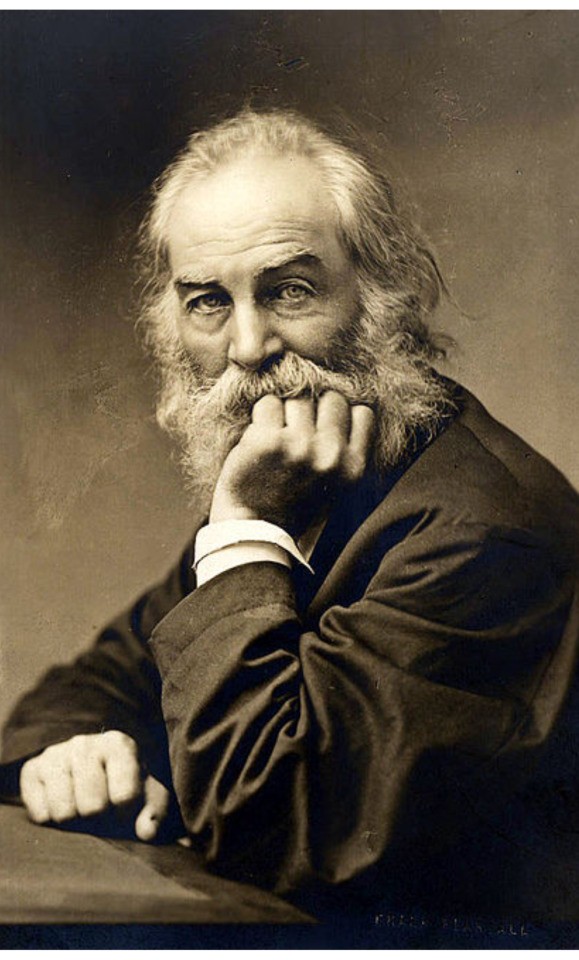


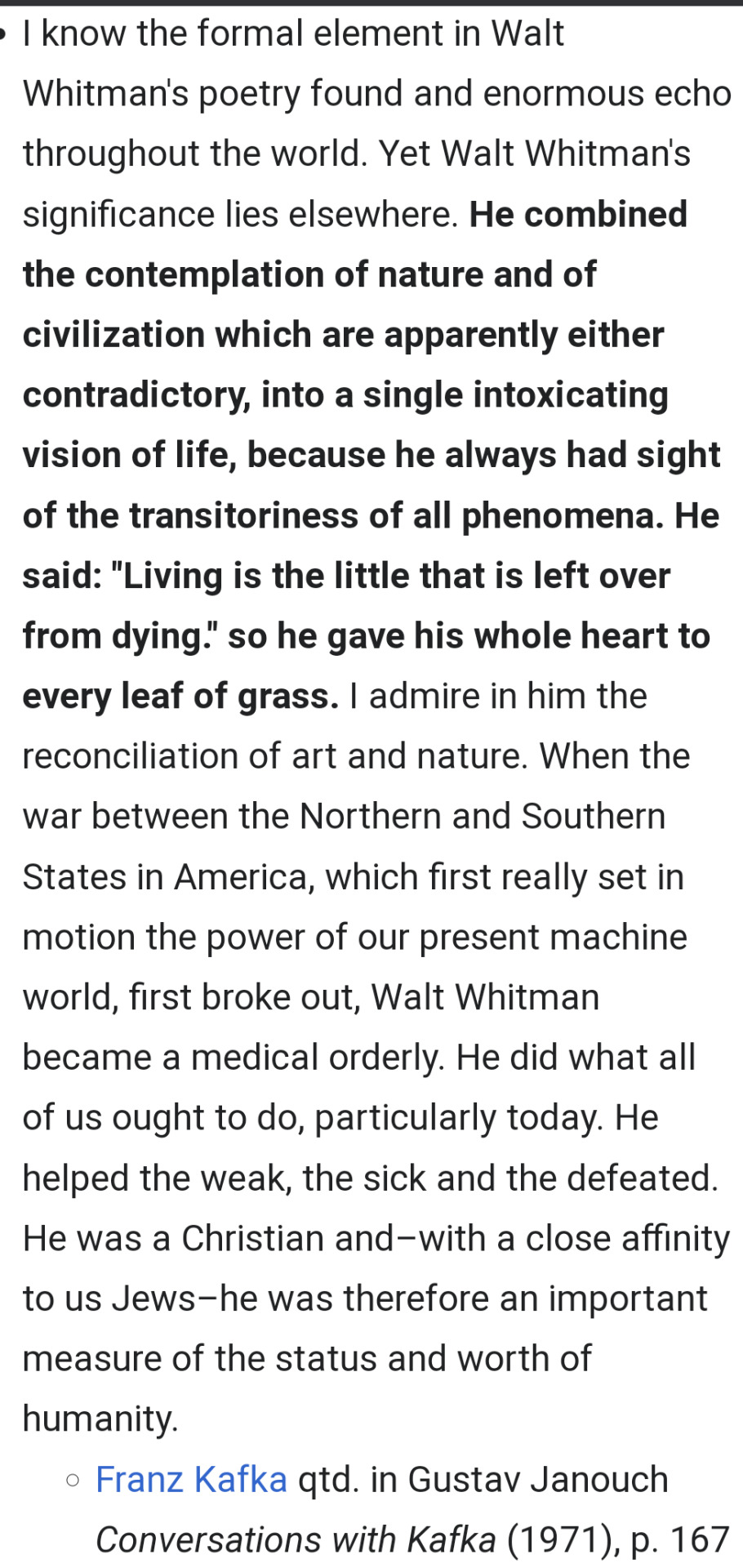
Pics: HPL denigrates Walt Whitman!
1. Lovecraft's Weird Tales poems - collected!
2 thru 4. Walt Whitman, considered one of the U.S.'s most important writers. Certainly one of its most influential.
5 & 6. A quote from Whitman & a quote about him...
1912: "Walt Whitman" fragment.
Intro: An unfinished poem putting the "Father of Free Verse¹" down. Or, so Howard hoped²...
Bio: Whitman was an American journalist, philosopher, novelist, essayist, poet & Civil War nurse!
Walt's major works are described as a mix of transcendentalism³ & realism.
Whitman is best known for his book of poetry, "Leaves of Grass", which celebrates nature, love, democracy & friendship.
Walt also worked as a school teacher, printer, newspaper editor, carpenter & civil servant.
Plot: This isn't any kind of a balanced job of criticism. It's mostly HPL's take- down of Whitman & resembles a modern rap battle in style.
Except that it's all one sided⁴.
Mostly, Lovecraft describes Walt as a writer who "delights... rakes (&) warms (up) swine."
Walt, Howard states, has "sunk to the level of the beast, (his) wit run wild."
Continuing in this way, HPL decries how Whitman's "rough brain... play(s) the brute alone."
And traces these "gross thoughts (to) Adam's beastial child⁵!"
Then, Lovecraft further puts down Walt's talent as mere "fevered fancy (that) shuns... measured pace⁶."
And traces this to Whitman's "copies (of) Ovid's filth⁷, without (any) grace."
Then, Howard really gets personal...
Claiming that Walt was "void of (any) shame", "adverse to culture" & "never knew the pleasures of the mind."
Ouch...
The most telling put down has to be how Whitman is "strange to human- kind⁸."
Notes:
1. Free verse is poetry with no classical structure or rhyme. It's different from prose due to its rhythm, 'heightened' language & word placement.
2. When it 1st came out, Walt's work was considered obscene! So, the prudish HPL wasn't alone in his criticism.
But, it's strange to see Lovecraft defend the same establishment that didn't understand what Howard himself was doing.
3. Transcendentalism is an American philosophical school concerned with pantheistic mysticism.
Though Whitman was a bit of a religious skeptic, he was into pantheism. This is a belief of "God being in everyone & everything."
4. Or, as David Howard put it, "That's the most bizarre bit of poetry I've ever read. Lovecraft criticizing Whitman in the style of Pope!"
But, actually, Howard criticized most of the fiction of his day, blaming consumer capitalism for corrupting literature itself!!
And, Lovecraft looked down on most professional writers. All because they wrote of 'mere' human interactions - something that he wasn't interested in doing or reading about.
5. This is a reference to Cain, who - in some Hebrew legends - becomes a beast & is hunted down to death.
6. HPL hated Whitman for giving free verse respectability.
Howard didn't approve of anyone defying the classical standards that he, himself, strongly supported.
7. Ovid's 'filth' must describe one of the Roman poet's main subjects - sexual passion.
As we have already seen (in an earlier post), Ovid also wrote on mythology & the sorrows of exile.
8. Walt's poetry was, at 1st, unpopular. His celebration of sex & exploration of taboo subjects led to the censorship of his work.
It's not just that Whitman's free verse was seen as too radical. "Leaves of Grass" also contains some overt sexual & homoerotic references.
Mild in our porn obsessed, modern world. But, it led to "Leaves" being banned from libraries, schools & book stores!
Weird Bits:
1. Walt's work was used, by socialists of the time, as evidence of the sexual depravity of capitalism!!
2. Whitman's work got a very different reception in Europe - where he got more respect than in the U.S.!
0 notes